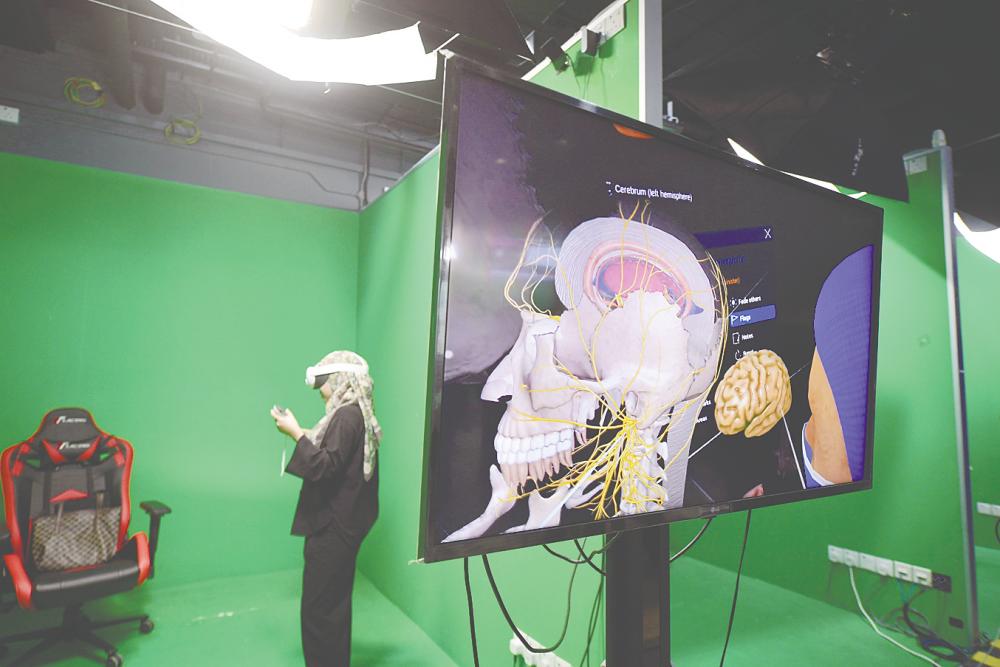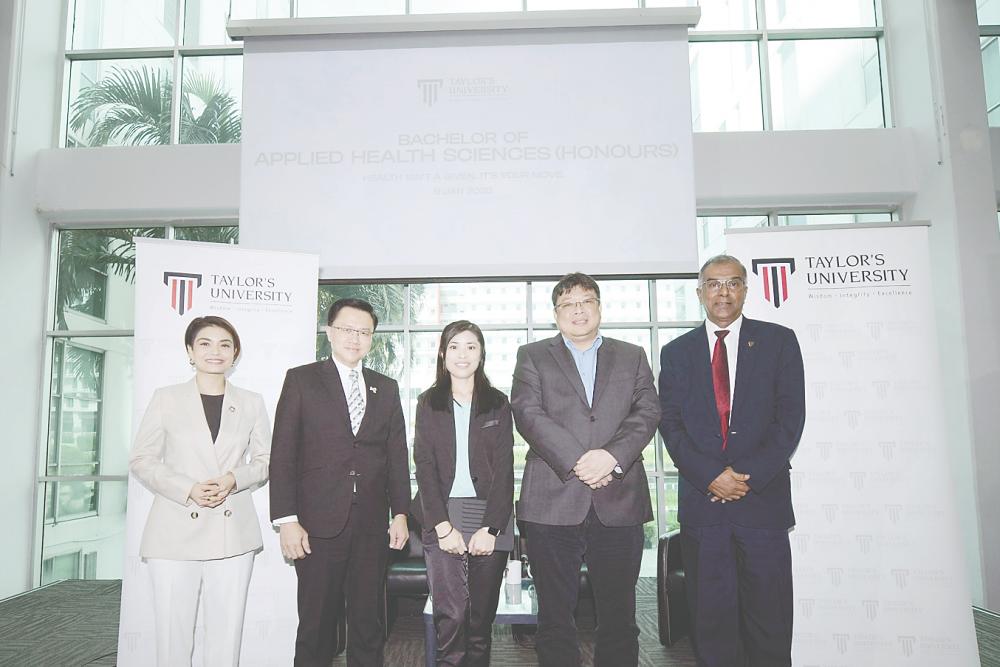Taylor’s University has responded to the increased demand for health professionals with the launch of its Bachelor of Applied Health Sciences (Honours) programme, which aims to prepare graduates to meet the critical need in the areas of genetics, embryology, neuroscience and nutrition.
At the same time, according to Professor Dr PT Thomas, Executive Dean of the Faculty of Health and Medical Sciences, Taylor’s University, there is a call to action by Malaysia’s Ministry of Health in its Health White Paper (2023), where an urgent need to strengthen the current healthcare workforce is highlighted.
“The country is faced with a critical shortage of specialists, especially in rural areas, which hampers healthcare access and quality.
“The other fast emerging problems include the rise of communicable diseases, non-communicable diseases (NCDs), an ageing population, and the growing emphasis on mental health services.
“The introduction of the programme aligns with Malaysia’s rapidly expanding healthcare sector, which is projected to grow at a compound annual growth rate (CAGR) of 13.5%, reaching USD 48.41 billion by 2028,” he said.
Currently offered under the School of Biosciences, this 3-year undergraduate honours programme provides students with a robust foundation in applied health sciences. The curriculum is designed to equip students with advanced knowledge, hands-on expertise, and research capabilities to excel in Malaysia’s dynamic healthcare landscape.
The four key areas, which will be specialisation of research and development includes Genetics, an understanding of the genetic basis of diseases and advancements in genetic technologies, Embryology, which delves into embryonic development and cutting-edge reproductive technologies, Neuroscience, which explores the complexities of the human brain, including neural pathways, brain-behaviour relationship, and neurological disorders and Nutrition, which examines the impact of diet on health, metabolism, and strategies for disease prevention.
The programme incorporates advanced tools such as Clustered Regularly Interspaced Short Palindromic Repeats (CRISPR), Brain-Computer Interface (BCI), In Vitro Fertilisation (IVF), and wearable-sensing technology, thus preparing graduates to address modern healthcare challenges.

“This programme is designed to produce highly skilled graduates that not only address the gaps in the Malaysia healthcare workforce, but also are proficient in advanced healthcare technologies and capable of driving innovation in the sector,” said Dr Lee Sau Har, programme director of the Bachelor of Applied Health Sciences (Honours).
“By integrating state-of-the-art tools, our students gain the expertise needed to address the complexities of modern healthcare. Additionally, our curriculum also integrates scientific knowledge with entrepreneurial skills, offering personalised learning journeys and focused research projects aligned to their specialisations. These elements enable them to tackle disease-specific challenges and contribute to sustainable healthcare solutions in Malaysia and beyond.”
During the launch, a panel of industry experts, which included Tehmina Kaoosji, moderator; Arieff Aaron Abdullah, Director of Invest Selangor - Selangor Biotechnology Coordination Office (S-BIOCO); Professor Dr Leong Chee Onn, Founder of AGTC Genomics; and Dr Lee discussed the evolving healthcare landscape in Malaysia, emphasising the relevance of applied health sciences in addressing the need for sustainable and innovative solutions.
“The National Health and Morbidity Survey (NHMS) 2023 revealed that over two million adults in Malaysia live with three major NCDs such as diabetes, hypertension, and high cholesterol. The need for innovative healthcare solutions has never been more urgent,” said Aaron.
According to Professor Dr Leong, “The healthcare industry is undergoing transformative changes, driven by advancements in technology especially in genomics, AI, and precision medicine.
“These innovations are revolutionising diagnostics and treatment, but they also highlight the urgent need for a skilled workforce capable of leveraging these technologies to address complex healthcare challenges and improve patient outcomes,” he said.
The programme is also aligned with key policies, including the Malaysia Health White Paper and the National Policy for Quality in Healthcare 2022 – 2026, equipping graduates to contribute to sustainable healthcare, disease prevention, and policy innovation.
Taylor’s University’s Bachelor of Applied Health Sciences (Honours) programme first intake of students opens in April 2025, with subsequent intakes in April and September annually.
For more information about the programme, visit bit.ly/TaylorsAppliedHealthSciences









